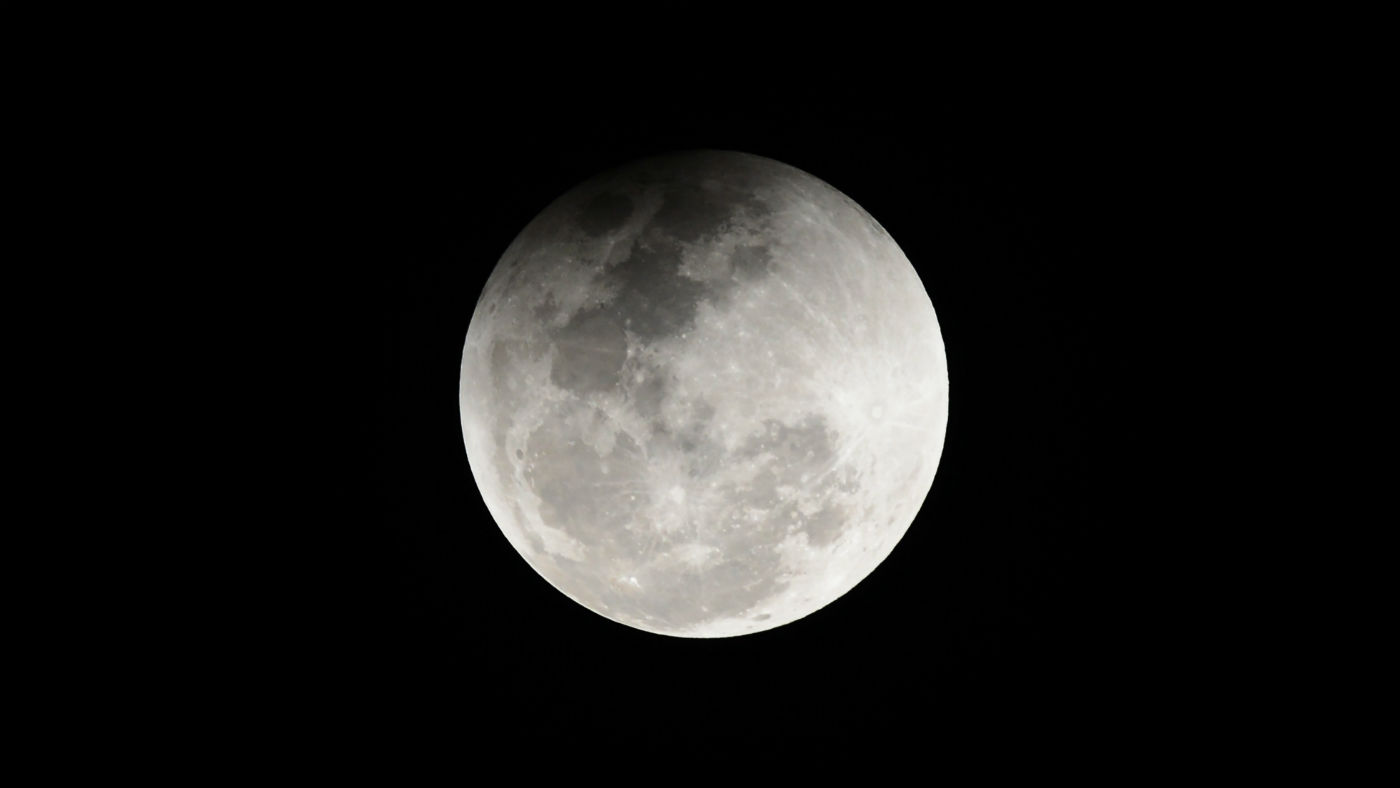First private spacecraft to attempt Moon landing crashes
Israeli Beresheet mission would have been first non-state spacecraft to make lunar landing

A free daily email with the biggest news stories of the day – and the best features from TheWeek.com
You are now subscribed
Your newsletter sign-up was successful
The first privately funded mission to the Moon has crashed on the lunar surface, in a blow to what had been hoped would have been a landmark moment for space exploration.
The Israeli spacecraft Beresheet, named after the Hebrew for “in the beginning”, was a joint project between SpaceIL, a privately funded Israeli non-profit organisation, and Israel Aerospace Industries.
It set off for the moon in late February but crashed on the lunar surface after the apparent failure of its main engine.
The Week
Escape your echo chamber. Get the facts behind the news, plus analysis from multiple perspectives.

Sign up for The Week's Free Newsletters
From our morning news briefing to a weekly Good News Newsletter, get the best of The Week delivered directly to your inbox.
From our morning news briefing to a weekly Good News Newsletter, get the best of The Week delivered directly to your inbox.
“We didn't make it, but we definitely tried,” said project originator and major backer Morris Kahn.
“I think that the achievement of getting to where we got is really tremendous, I think we can be proud,” he said.
Newly re-elected Prime Minister Benjamin Netanyahu, watching from the control room near Tel Aviv, said: “If at first you don't succeed, you try again”.
Israel had hoped to become the fourth country to land a spacecraft on the Moon. So far, only government space agencies from the former Soviet Union, the US and China have achieved this.
A free daily email with the biggest news stories of the day – and the best features from TheWeek.com
“Historically, space exploration, especially orbital launches which involve the spacecraft going high enough to complete an orbit of the Earth, has been so expensive and offered such uncertain returns on investment that it could only be funded by states,” says Sky News.
In a sign of just how costly space exploration has been in the past, during the height of the space race, Nasa’s budget stretched to more than 4.4% of the entire US federal government budget - compared to less than 0.5% in 2017.
By contrast, the Beresheet mission cost about $100m, “paving the way for future low-cost lunar exploration” says the BBC.
Its origins lie in the 2007 Google Lunar XPrize, an international challenge offering $20m for the first privately developed spacecraft to land on the Moon. Despite falling at the final hurdle, Haaretz says the success of Beresheet is nevertheless still “important in demonstrating the economic potential of space exploration, much of which is expected to be carried out in the coming years for commercial purposes by the private sector”.
Data analysis by Sky News shows that, since the 1990s, the private sector has driven investment in space exploration while states decreased the number of launches they were undertaking.
One country to have bucked this trend is China, which over the last ten years has been the only state agency to significantly increase its number of orbital launches.
Space says China’s National Space Administration kicked off “another installment of an international rush to the Moon this year” by landing its Chang'e 4 lander and rover on the far side, “a feat no country had accomplished before”.
India hopes to touch down on the moon's surface this year for the first time with its Chandrayaan-2 mission, and Nasa has said it is hoping to begin an ambitious programme of returning humans to the Moon by 2024 by sending small commercial landers carrying science instruments to the moon before the end of this year.
-
 How to Get to Heaven from Belfast: a ‘highly entertaining ride’
How to Get to Heaven from Belfast: a ‘highly entertaining ride’The Week Recommends Mystery-comedy from the creator of Derry Girls should be ‘your new binge-watch’
-
 The 8 best TV shows of the 1960s
The 8 best TV shows of the 1960sThe standout shows of this decade take viewers from outer space to the Wild West
-
 Microdramas are booming
Microdramas are boomingUnder the radar Scroll to watch a whole movie
-
 NASA’s lunar rocket is surrounded by safety concerns
NASA’s lunar rocket is surrounded by safety concernsThe Explainer The agency hopes to launch a new mission to the moon in the coming months
-
 Nasa’s new dark matter map
Nasa’s new dark matter mapUnder the Radar High-resolution images may help scientists understand the ‘gravitational scaffolding into which everything else falls and is built into galaxies’
-
 Moon dust has earthly elements thanks to a magnetic bridge
Moon dust has earthly elements thanks to a magnetic bridgeUnder the radar The substances could help supply a lunar base
-
 How Mars influences Earth’s climate
How Mars influences Earth’s climateThe explainer A pull in the right direction
-
 The ‘eclipse of the century’ is coming in 2027
The ‘eclipse of the century’ is coming in 2027Under the radar It will last for over 6 minutes
-
 NASA discovered ‘resilient’ microbes in its cleanrooms
NASA discovered ‘resilient’ microbes in its cleanroomsUnder the radar The bacteria could contaminate space
-
 Artemis II: back to the Moon
Artemis II: back to the MoonThe Explainer Four astronauts will soon be blasting off into deep space – the first to do so in half a century
-
 The mysterious origin of a lemon-shaped exoplanet
The mysterious origin of a lemon-shaped exoplanetUnder the radar It may be made from a former star